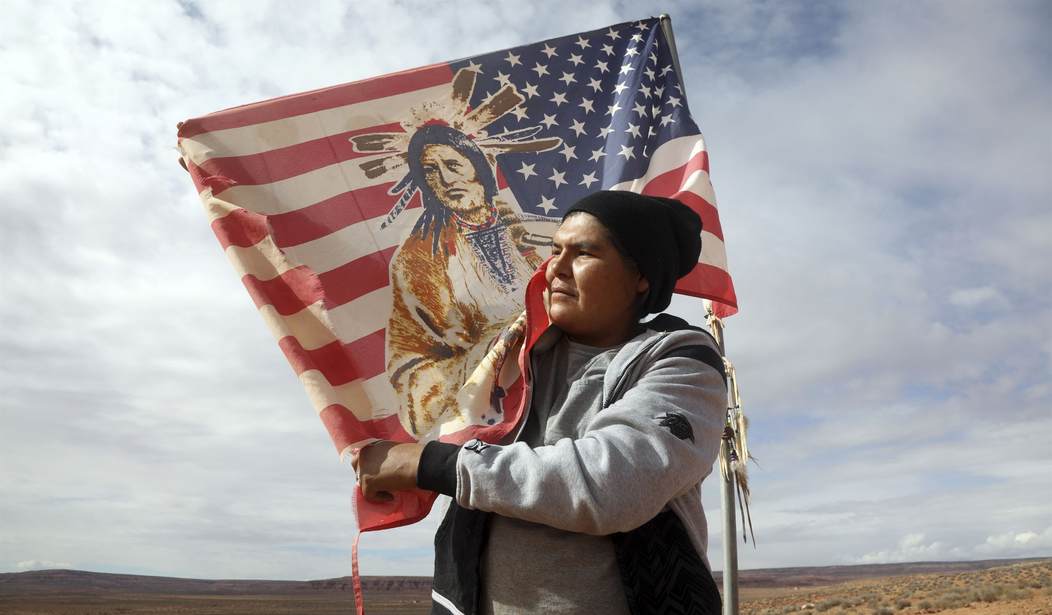A law that prioritizes placing Native American children in foster or adoptive homes with a tribal relative has been challenged in the Supreme Court by a white couple who are trying to adopt the Native American sister of their son, who was adopted in 2017.
Chad and Jennifer Brackeen, a white couple from Texas, adopted their Native American son after no tribal relative could be found. But now, there’s a girl born in 2018 to the same mother who gave birth to the Brackeens’ son and the Brackeens believe both children would be better off together.
In the girl’s case, the Navajo tribe argued that custody should go to a great-aunt who lives on a reservation. This would be in keeping with the Indian Child Welfare Act (ICWA) of 1978, which stipulated that whenever possible, Native American children should be placed with members of the same race.
This could violate the 14th Amendment’s stricture against racial discrimination, and the Supreme Court just heard oral arguments on the issue.
ICWA established minimum federal standards for removing native children from their homes. It required state courts to notify tribes when an American Indian child is removed from her family, and it required that in foster and adoption placements, preference be given first to a child’s extended family, then to other members of the tribe, and, if neither is available, the preference is for a child to be placed with a different tribe.
While Native Americans are, indeed, a separate racial group, the government has long seen them as a separate political entity. Whether the Supreme Court agrees will determine the boundaries of Native sovereignty.
Justice Gorsuch noted that Article One of the Constitution gives Congress nearly unlimited authority to legislate on behalf of Native Americans.
Like several other justices, he said the objections to ICWA in reality are objections to the policy choices that Congress adopted in the law. Your arguments “are better addressed across the street,” he said. Meaning, that if some people don’t like the law, they should go to Congress, not to the courts.
Justice Samuel Alito admitted that “I honestly” have “had this great difficulty dealing with this Article I question.” Article I of the Constitution gives Congress the plenary power to legislate on behalf of Indians as a political group. “If plenary means plenary, Congress can do whatever it wants….It’s an easy case,” Alito said. But “if there are limits, it’s hard for me to see what the limits are.”
The problem for advocates who want to see the end of ICWA is that there are so many other government programs that would be affected if the 1978 Act were to be repealed.
The government’s Deputy Solicitor General Edwin Kneedler replied that many other programs established for Native Americans could fall, including the program that provides health care for Indians, as well as laws that protect American Indian lands, fishing, and hunting rights, laws that, he stressed, are based on treaties with the U.S. government.
But several conservative justices noted that the court would not, and has not, accepted laws that ban children from being adopted by parents of a different race. That, they noted would be a clear case of race discrimination.
The necessity for the passage of the ICWA in 1978 was great. But it may be one law that has outlived its usefulness. At least, the Supreme Court should give the law a long look, and if they determine that it is being used to enforce race-based adoptions and foster placements, it should be ended.










Join the conversation as a VIP Member